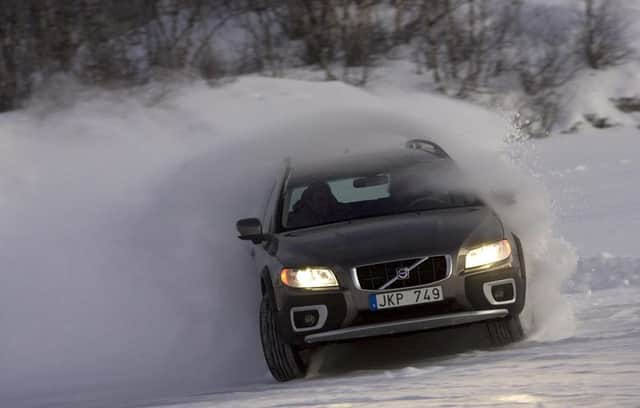Alisdair Suttie: Do you really need a 4x4?


The biggest growth in car sales in 2015 is not in the crossover or supermini sectors as you might expect. Instead, the best-performing part of the car market is for 4x4s, which saw a 9.1% rise in sales in 2015 compared to 2014.
These figures are for used 4x4s, but new all-wheel drive cars are also rising in the sales charts. Whether it’s a full-size off-roader, crossover or four-wheel drive saloon, UK car buyers are increasingly likely to choose a car with all of its wheels driven.
Advertisement
Hide AdAdvertisement
Hide AdMany buyers cite the extra grip and traction offered by an all-wheel drive car when the weather turns bad as a reason for choosing this type of vehicle. Some say they need the added ground clearance of a 4x4 for the roads they drive on, while other drivers note the ability to tow a trailer.
Whatever the reason, and there are plenty, choosing a 4x4 vehicle over a two-wheel drive version does mean making some compromises. The most obvious trade-off with a 4x4 is fuel economy as the all-wheel drive transmission creates extra resistance that means more fuel is spent overcoming this.
All-wheel drive also adds extra weight to a car as you need an extra propshaft and differential to transfer the drive to the other axle. Some 4x4 cars also have a third differential between the front and rear axles to vary the amount of power sent to either axle. This can be used for either performance or off-road abilities, but it also adds even more weight to the car.
While 4x4 systems certainly help with grip, this comes at the expense of increased drag on the tyres. In turn, this means the engine has to work harder to overcome this and turn the wheels of the car as intended.
Another consequence of all-wheel drive is there are more components that need to be serviced regularly and replaced when they wear out. Four-wheel drive cars tend to get through tyres more quickly too, so you will have to budget for this when considering one as your car.
All of this will not deter anyone who truly needs an all-wheel drive car for their work or the type of driving they encounter daily. For the rest of us, however, the occasional flutter of snow is a poor excuse for buying a heavier, less fuel-efficient car over one that can do the job just as well with two-wheel drive.
Why do people continue to choose 4x4s, then? A great deal is down to the style of the cars and their perceived safety as the position of the driver high up in a car generally feels more substantial than in the average hatchback or saloon.
Looking at the most searched for used 4x4s, it’s clear to see buyers place style alongside substance, as the most popular used 4x4 searches include the BMW X5, Range Rover and Sport models, BMW X3 and Mercedes M-Class. The next five spots are taken up by the Honda CR-V, VW Touareg, Range Rover Evoque, Toyota RAV4 and Audi Q5.
Most of these cars are no better in poor weather than a two-wheel drive saloon or estate with winter tyres, so save yourself some money and stick with a two-wheel drive car.